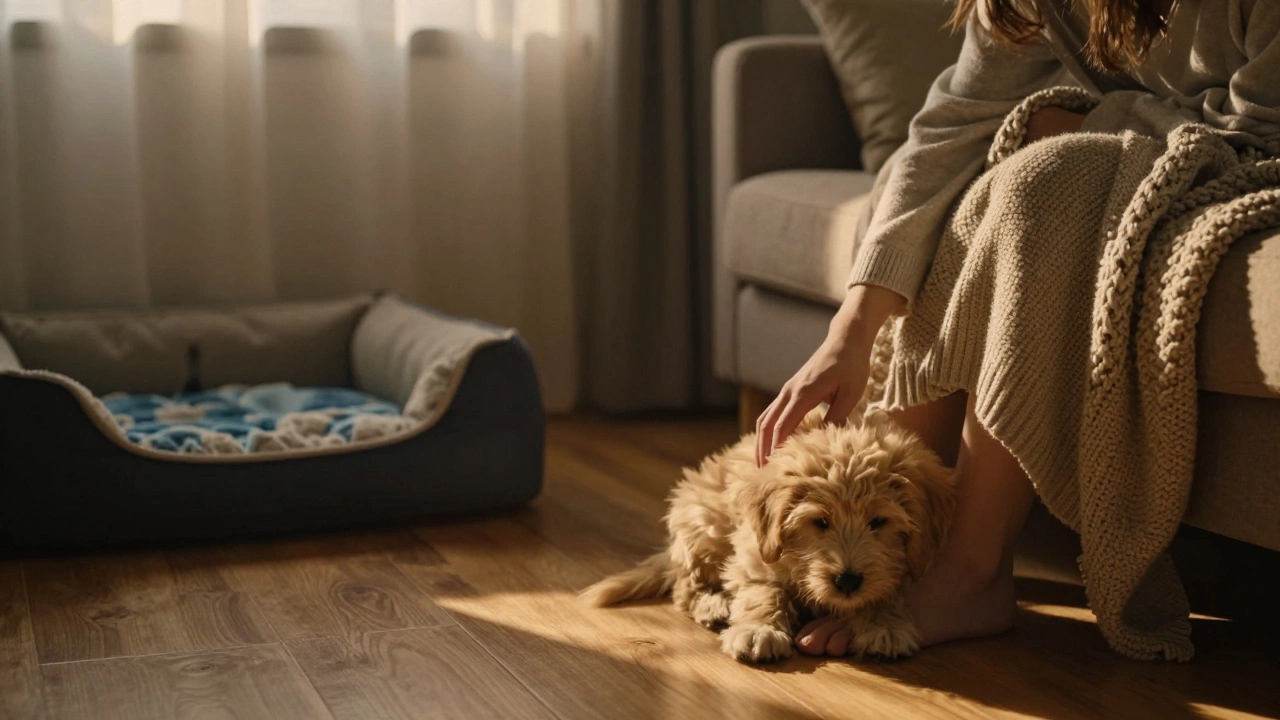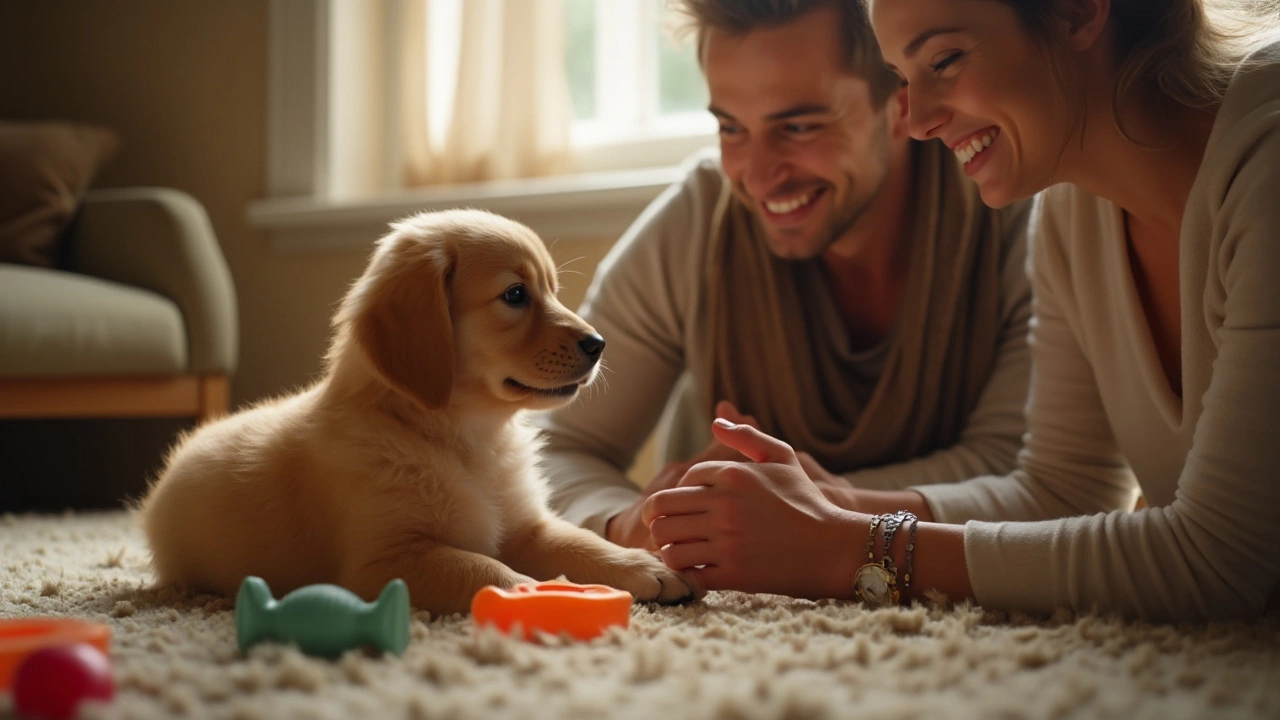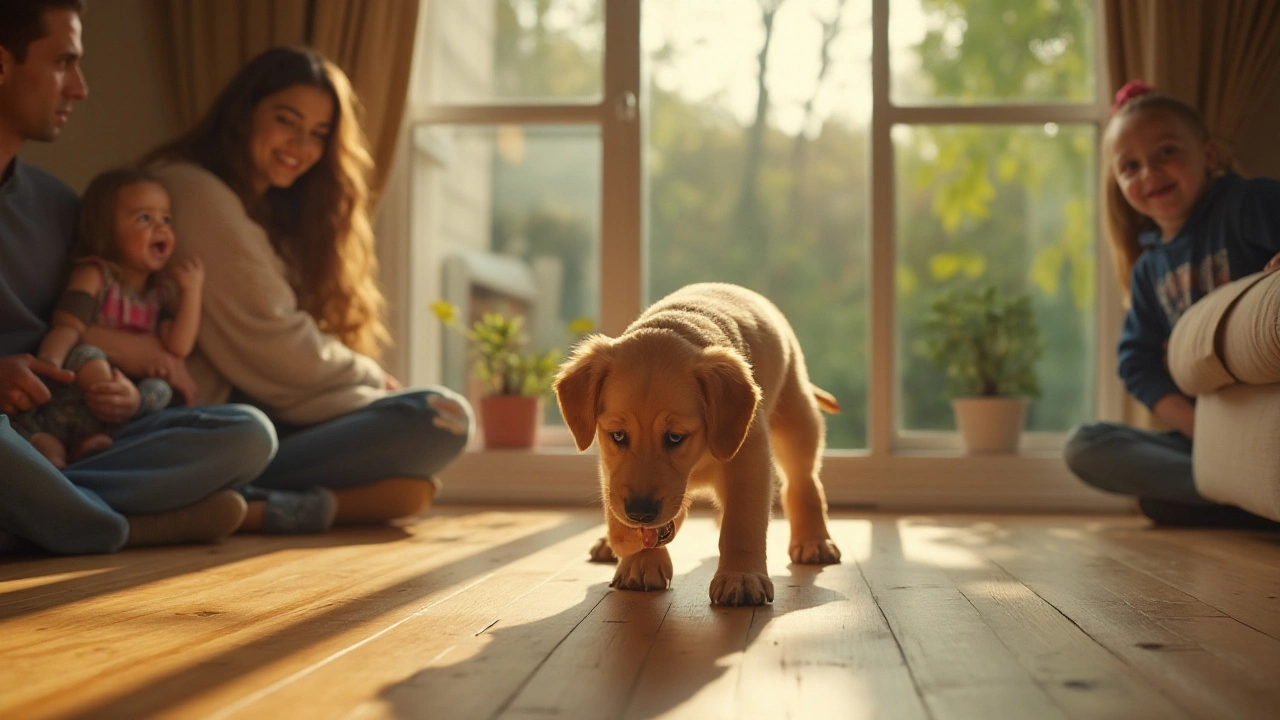Puppy Behavior: Practical Tips for a Happy, Well‑Mannered Pup
Got a new puppy and wonder why they’re chewing everything, roaming the house, or ignoring the word "no"? You’re not alone. Puppies are curious, energetic, and still learning the rules. The good news is that with a few simple habits you can guide them toward good behavior fast.
Common Puppy Challenges
First, let’s look at the everyday problems most owners face. Chewing is a puppy’s way of soothing sore gums and exploring the world. Give them safe chew toys and rotate them regularly – this keeps interest high and prevents boredom. If you catch them on the sofa or shoes, redirect calmly to a toy instead of yelling.
Roaming the house is another classic issue. Puppies need to know where they’re allowed and where they’re not. Start with a single safe room and a cozy crate. Gradually open up the space as they master basic commands like "stay" and "come." Crate training also helps with nighttime sleep and potty breaks.
Teaching the word "no" works best when you pair it with a clear alternative. When your pup bites your hand, say "no" in a firm but calm tone, then offer a chew toy. Consistency is key – use the same tone and follow up with the right choice every time.
Positive Training Techniques
Positive reinforcement beats punishment every time. Keep treats small and tasty, then reward the exact behaviour you want. For example, when your puppy sits on command, give a treat and a quick praise. Over time they’ll connect the command with the reward and repeat it.
Short training sessions work best. Aim for 5‑10 minutes, 2‑3 times a day. Puppies have short attention spans, so ending on a success keeps them excited for the next round. Mix in games like fetch or hide‑and‑seek to make learning fun.Socialisation is part of good behaviour too. Expose your pup to different sounds, people, and other dogs in a controlled way. A well‑socialised puppy is less likely to bark or become fearful later on.
Lastly, remember bedtime habits. Puppies often wake up early because they’re still adjusting to a schedule. Set a calm pre‑sleep routine – dim lights, a short walk, and a comfortable bed in a quiet corner. If they whine, wait a few minutes before checking, so they learn they can settle on their own.
These straightforward steps—providing appropriate chew toys, using a safe crate, teaching "no" with a replacement, rewarding good actions, short sessions, socialisation, and a calm bedtime—cover the most common puppy behaviour hurdles. Stick with them, stay patient, and watch your pup grow into the well‑behaved companion you’re hoping for.

Is It OK to Cuddle Your Puppy on the Couch?
Cuddling your puppy on the couch can strengthen your bond-but only if done with clear boundaries. Learn when it’s healthy, when it’s risky, and how to make it work long-term.
View more
When Do Puppies Start Responding to Commands?
Training a puppy to obey commands is a crucial aspect of pet ownership. Puppies can start learning basic commands as early as eight weeks old, although patience and consistency are key. Using toys can aid in reinforcing obedience by providing visual and tactile cues. This article explores the timeline of puppy obedience, offering tips on incorporating toys to make training both effective and enjoyable.
View more
When Do Puppies Become Easier to Handle? Tips and Tricks
Raising a puppy can be challenging, but understanding when they start to get easier can help immensely. This article explores key developmental milestones, offering insights into puppy behavior and when you might notice changes. We'll also discuss how the right toys and training methods can assist during this crucial period. Tips for each stage will help make the transition smoother for both you and your pup. Enjoy as we help you navigate the joys and trials of puppyhood.
View more